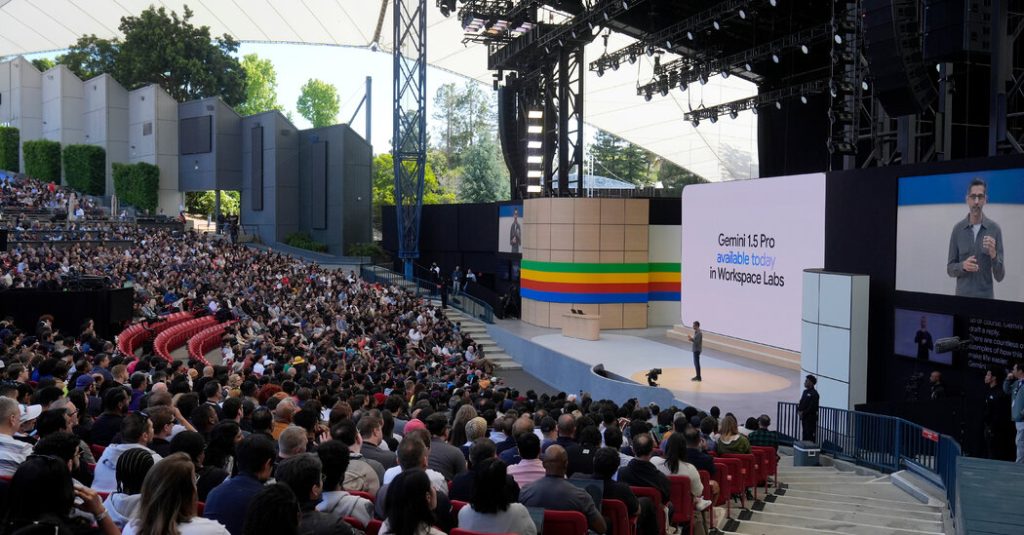Last May, Google’s CEO Sundar Pichai announced that the company would be using artificial intelligence to enhance all of its products. However, due to the potential risks associated with new generative A.I. technology, such as misinformation, Google was cautious about implementing it in its search engine. At Google’s annual conference in California, Pichai revealed that the company’s aggressive work on A.I. had finally made its way into the search engine. A new feature called A.I. Overviews will provide users with information summaries above traditional search results. This feature will be available to more than a billion people by the end of the year.
The introduction of A.I. Overviews has raised concerns among web publishers about potential decreases in traffic from Google Search. Google stated that the links included in A.I. Overviews actually receive more clicks from users than traditional search results, aiming to send valuable traffic to publishers and creators. The company also unveiled various other initiatives at the conference, such as lightweight A.I. models, new chips, and agents to assist users in tasks as part of a competition with Microsoft and OpenAI.
Google has been working to regain its advantage in A.I. since the release of OpenAI’s ChatGPT, which was seen as a threat to Google’s search engine. The company has introduced a range of new A.I. technology named Gemini, incorporated into platforms like YouTube, Gmail, and Docs to facilitate content creation for users. OpenAI’s latest version of ChatGPT, presented the day before Google’s conference, poses another challenge in the ongoing competition between the companies.
At the Silicon Valley event, Google revealed Project Astra, an experiment involving A.I. acting as an agent to interact with users through voice and visual responses. Gemini 1.5 Flash, a new A.I. model by DeepMind, is designed for speed and efficiency, offering capabilities in reasoning, summarizing information, and captioning media content. Google also introduced Veo, an A.I. model for generating high-definition videos based on text prompts, similar to OpenAI’s Sora system, with plans to integrate its abilities into platforms like YouTube Shorts.
In response to user feedback and criticism, Google has made adjustments to its Gemini chatbot, including providing users with more control over interactions through voice commands and camera inputs. The company has implemented changes to the chatbot’s image generation capabilities and plans to integrate A.I. technology into various products, including music generation and image processing tools. Google anticipates that the majority of users will engage with Gemini A.I. technology through its search engine, which will feature organized search results pages generated by A.I., starting with dining and recipe queries.
Google’s search updates, including A.I. Overviews and organized search results, aim to save users time by automating more tasks and providing easier access to information. Pichai stated that the company intends to make interactions with Gemini A.I. technology seamless on its platforms, emphasizing the potential for users to benefit from the advancements in A.I. through Google’s products and services.


